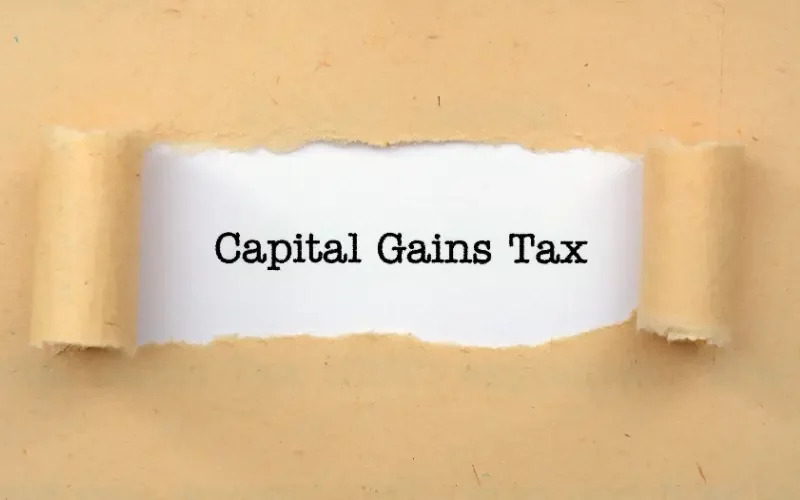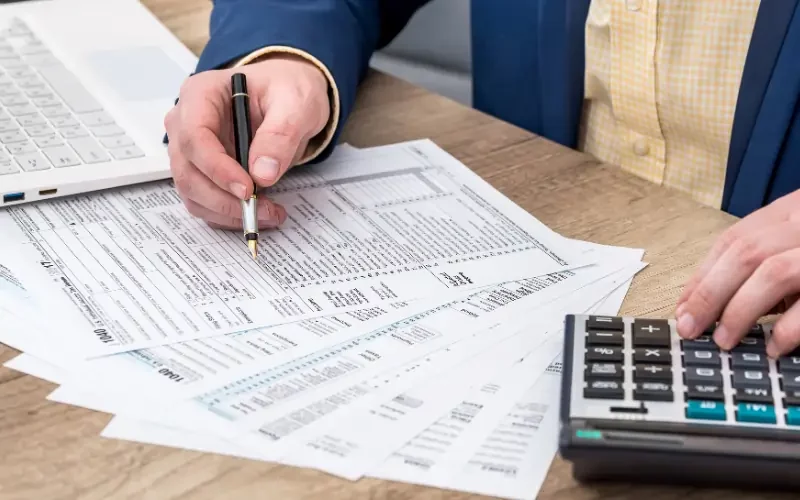
Selling a home in Georgia can be exciting, but that excitement can be a double-edged sword. That sale may come with a heaping side order of tax liability. One of the biggest things homeowners need to remember when selling is the Georgia capital gains tax. This tax obligation will typically apply any time you sell a property that has increased in value since the original purchase. Knowing the specifics about this tax and how it works is important for knowing what to expect, tax-wise, at both the federal and state levels.
That’s why we’ve put this guide together to help you get a better grasp of the capital gains rules in Georgia. You’ll learn how the gains are calculated, along with strategies that help reduce your total tax liability. Whether you’re getting ready to sell your home or selling an investment property from your portfolio, having more information means making better decisions. Better decisions can mean keeping more of your profits.
What Is Capital Gains Tax When Selling a Home?
Capital gains taxes are the taxes owed when you sell assets for more than you initially paid. That original payment is called your cost basis. The cost basis comes from the purchase price being combined with other expenses, like closing costs and major improvements. This is subtracted from the current fair market value at the time of the sale. The difference is your gains, and they are taxable income.
Capital gains are split into two categories: short-term capital gains and long-term gains. Short-term capital gains apply to assets held for one year or less, while assets held for more than a year qualify as long-term.
Short-term capital gains are taxed as regular income, at your ordinary income tax rate. Long-term capital gains, however, qualify for a lower tax bracket.
How Capital Gains Tax Works in Georgia
In Georgia, capital gains are treated as part of your taxable income. Unlike some states that don’t levy income tax, Georgia treats gains from the sale of real estate the same as other types of income. The state’s tax rates are currently capped at 5.75%, applied to your taxable income after deductions and adjustments.
Either way, it’s critical to remember that your property tax assessment is different from your capital gains calculations, and the assessed value is not the same as the market value. The assessed value is determined by the county tax commissioner’s office or the tax assessor’s office.
Property tax payments are the foundation of funding for local services like fire, police, and schools. Capital gains taxes, on the other hand, are tied directly to profiting from selling assets.
Federal vs. State Capital Gains Taxes
It isn’t until you reach the federal taxes that your gains are classified as short-term capital gains or long-term capital gains.
Short-term gains can see tax rates as high as 37%. Long-term gains, however, are taxed at preferential rates of either 0%, 15%, or 20%. High-earners may also face a 3.8% surcharge called a net investment income tax.
When these rates are combined with the Georgia state income tax, the result is cumulative. Let’s look at an example: a homeowner in the 15% federal bracket would also owe 5.75% to the state. This comes to nearly 21% tax liability on the profit of the sale.
If you’re trying to figure out what your options are when you sell your current home in Midland, it can help to put real numbers in the equation. Sell Your House Fast can give you a fair cash offer that will let you start crunching numbers. Once you decide, a fast closing gets you on your way to the next chapter, fast.
Short-Term vs. Long-Term Capital Gains
The way your home sale is taxed depends heavily on how long you’ve owned the property. Short-term capital gains apply if you’ve held the home for one year or less. These gains are taxed as ordinary income, meaning they follow your federal income brackets and could push you into a higher tax bracket.
Long-term capital gains apply when you’ve owned the property for more than a year. These gains can be taxed up to 20%, depending on your income. This can often mean paying a lower tax liability than short-term gains, so when you pay taxes, you pay less.
This is an important timing issue for homeowners. Selling an investment property that you’ve only had for a few months can have serious tax implications. You could get a tax bill that’s thousands more than you planned for if you don’t wait until it qualifies for long-term tax rates.
Georgia Capital Gains Tax Rates on Real Estate
Anytime real property is sold in the state of Georgia, taxes on capital gains are imposed, as is the case with the federal government. The state treats capital gains as regular income, which gets hit with a 5.75% tax.
Once you move to the federal level, you’ll need to take into account your filing status. Single filers can exclude $250,000, while married joint-filers can exempt up to $500,000, as long as they’ve lived in the home for two out of the last five years. This is a massive exclusion that can completely eliminate the capital gains tax liability for many homeowners. See how your home value compares to nearby markets, and get a better view of the big picture.
Exemptions and Ways to Reduce Capital Gains Liability
Georgia homeowners have several ways to reduce their capital gains tax liability. The most common is the primary residence exclusion. If you’ve lived in your home for at least two of the past five years, you may exclude up to $250,000 of gains if filing single or $500,000 if married filing jointly.
You can also lower taxable gains by deducting eligible closing costs, real estate commissions, and documented improvements such as renovations or energy-efficient upgrades. Keeping accurate records ensures these expenses offset capital gains and reduce the amount you’ll need to pay.
Other strategies include maximizing contributions to tax-advantaged accounts, adjusting your filing status, or timing your sale to stay in a lower tax bracket. For investors, harvesting losses from other assets in your investment portfolio can also offset gains.

Using a 1031 Exchange to Defer Taxes
A powerful tool for Georgia homeowners selling investment property is what’s known as a 1031 exchange. This allows you to defer your capital gains tax by reinvesting the proceeds into any other qualifying properties. Since the IRS requires the new property to be of “like kind”, which means if your capital gains came from a home sale, putting the gains into a new home may qualify for the 1031 exchange.
However, there are strict timelines set by the IRS. You must identify the replacement property within 45 days of selling the original. Also, the purchase needs to be completed within 180 days. Failing to meet these conditions triggers immediate taxation.
Even though the 1031 exchange doesn’t eliminate taxes, it can allow investors to shift capital from one property to another, keeping more money working for them as part of their investment portfolio.
With all that in mind, strict compliance is absolutely critical. Not all properties will qualify, and a primary residence won’t qualify. Working with a tax adviser is the only way to ensure that you’re following all applicable tax regulations.
When to Seek Professional Tax Advice
Calculating capital gains can get complicated quickly, especially when you’re dealing with multiple properties or changing tax laws. It can also get complex if you have large amounts of taxable investment income. These are all situations where leaning on an experienced tax professional is important. Not only do they help you calculate your liability and exemptions, but they can also help you avoid errors that lead to costly penalties.
On top of all that, a professional will use industry tools, like a capital gains tax calculator, to build individual projections for you. These projections will take into account your filing status, income level, and the type of property that was sold. Homeowners juggling federal income tax, Georgia state taxes, and possible surcharges like the net investment income tax, you can’t go wrong with expert guidance.
If you’ve sold appreciated assets before, own rental or investment properties, professional help can create significant tax savings.
Conclusion
Now that you’re armed with solid information about the capital gains tax in Georgia, you’re in a much better position to enter the market as a seller. You know the difference between short-term and long-term capital gains, as well as how to use exemptions to lower your tax liability where possible. Finally, you’re aware of tools like the 1031 exchange that give you even more options for using tax laws in your favor.
Selling a home doesn’t have to mean facing a massive tax burden. It does take a little planning, and you’ll need to ask for help if you need it. That said, it’s not impossible to minimize your costs and keep much more of your profits. If you’re ready to take the fast track to a stress-free sale, Assured Property Solutions is standing by to help. Get an offer based on fair market value, and close faster than you think.
